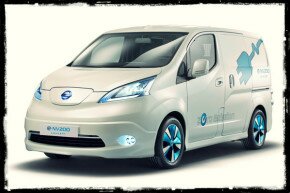Toyota is ready to boost Prius Plug-in Hybrid sales in the US
 |
Bill Fay, vice president of Toyota Div. Group, says that the japanese automaker wants to sell 12,000-13,000 Prius Plug-in hybrid cars in the US in 2013 to remain competitive with plug-in and EV competitors. The automaker is offering some deep discounts, especially in the Manhattan area.
The automaker sold 12,750 Prius PHEVs in 2012, beating out the Nissan Leaf electric vehicles by about 2,800 units but just about half of the number of Chevrolet Volt extended-range plug-ins sold. In 2013, Toyota has moved just 1,567 Prius Plug-ins, compared to almost 2,800 Volts that Chevrolet has sold.
“I don’t know that we have to necessarily go around and match everybody,” he said, referring to Toyota discounts intended to make plug-in cars competitive with gas-powered vehicles. “But we have to be sure we offer the same kind of value when they go to buy the vehicle.”
The 2013 Prius Plug-in Hybrid base model can be leased for $229 a month for 36 months until April 1, and lessees are eligible for $4,650 bonus cash, according to buyatoyota.com, the website of US Toyota dealer associations.
The 2013 Prius plug-in starts at $32,000 for the base model. Trim levels with amenities such as LED headlights, navigation and heads-up display can push the price to $39,525.
Dealer discounts on the 2012 Prius Plug-in Hybrid in Manhattan are as high as $6,500—and $4,650 off a 2013 model. Meanwhile, rebates are minimal for other non-plug Prius models, suggesting that dealerships are having an easier time selling those models. And in California, where solo drivers of the Prius PHEV are granted access to carpool lanes, cash rebates are more modest at about $1,650.
Historically, Toyota executives have viewed conventional hybrids as the key mainstream offering for green car buyers, and have questioned the market viability of more expensive battery-powered vehicles with larger batteries.
The discounted prices anticipate what sticker prices will eventually be for plug-in vehicles, as battery costs are reduced and economies of scale are achieved. For now, the incentives are good news for today’s car buyers wanting a car that uses grid-supplied electricity as fuel.















Leave a Reply